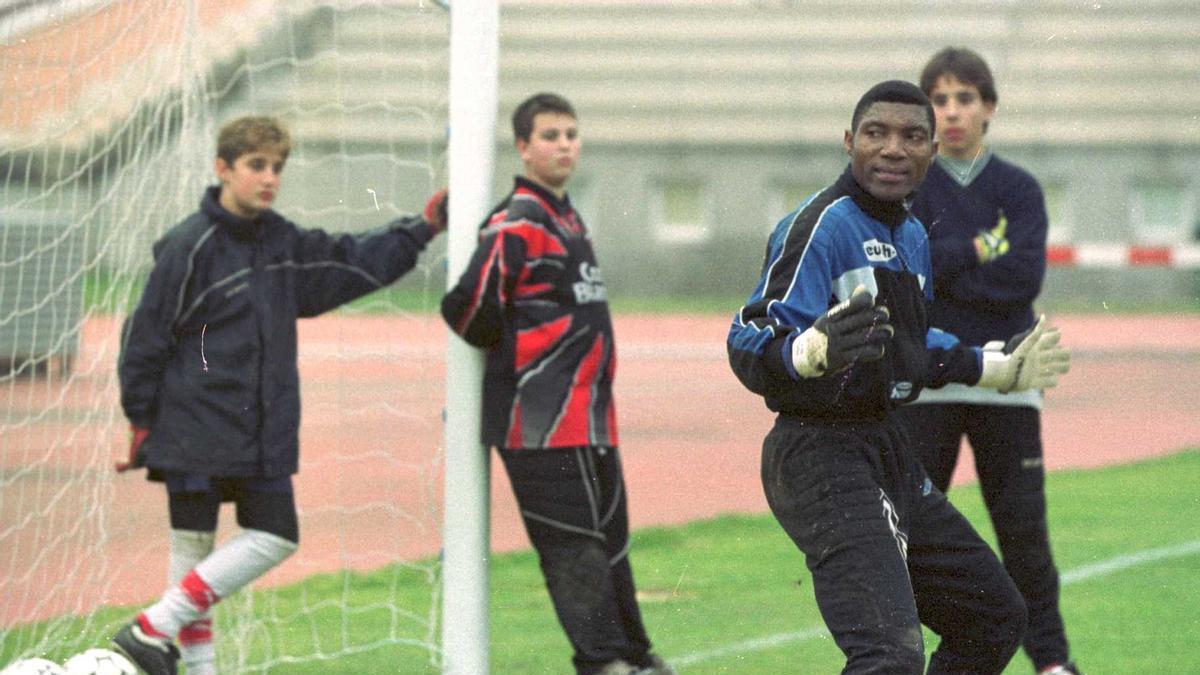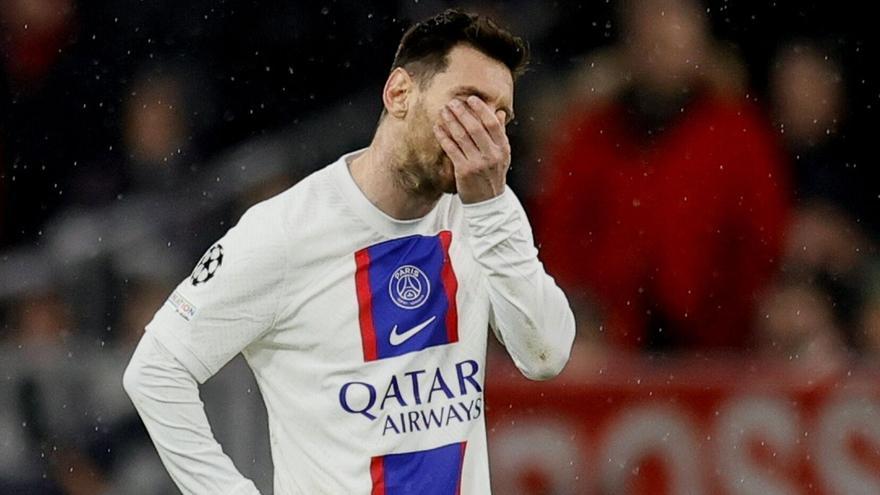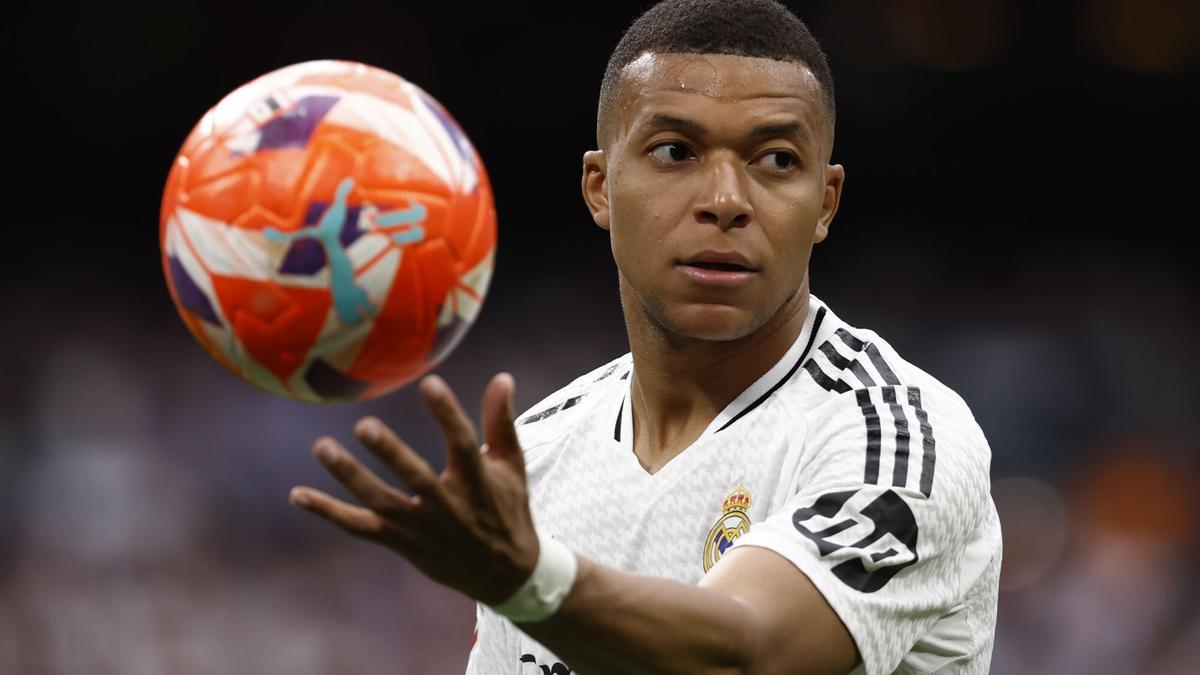It could have been a Monday like anyone else in the Alicante of the early 90s. Like every morning, José opens his little printing press very soon, located on José María Py Street Pérez Galdós corner. Everything seems the same as always but today it will not be the same day repeated. They are not even 8:00 and the first “client” has already entered. Good plant, black race, high … very high (around the ninety subway), thirty -few years And, within the already unusual, perhaps the most striking thing you saw completely blue. Shirt, jacket, pants … even the shoes are blue. José doesn't know him, he had never seen him. To the typical “Good morning, what do you want?” What the printer asks is followed by a suspect and disturbing “we go inside and explain” of the stranger in a Castilian rather than acceptable (symptomatic that he was not a newcomer to Spain) and that it is even more understandable by body language than by its pronunciation. José, who prefers to minimize risks, chooses to stay by the door and asks him to tell him what he wants with a brief “I listen to him.” “Look, I'm Abdul Malik, prince of the NIFE, a Nigerian tribe. A few weeks ago I left my country as I could, in search of a better future for my family … and managed If that movie had seen it before. There are one hundred gradk and in each there are five thousand dollars, in total there are half a million”Next, Abdul draws a spray out of his pocket, takes a ticket and, before the stunned look of the printer, spray it completely and, after a few seconds, Abraham Lincoln's face appears. Voilà: the black paper had become a five -dollar five dollar ticket. Now, after the explanation and the exhibition, only the proposal was needed.Look, I am desperate, I need money urgently to be able to establish myself in Alicante And I can't change this for pesetas. I propose a deal: I sell the spray and the briefcase in exchange for five million pesetas. ”Approximately sixty million in exchange for only five kilos. The pact seemed more than advantageous. So much so that it could not be true. The abdul Malik did not look precisely like Tony Leblanc or Antonio Ozores but that printer knew that it was before a stamps of manual. Obviously, he did not cast and Joseph asked that he left the printing press. When Malik left, José looked out the window and saw how the African headed to the face in front. Just a few days later, the local press echoed several scams in the area with the same modus operandi. It must be that, unlike the printer, some still believed in the blue princes …
A Prince in the UN of Football
Almendralejo, province of Badajoz, February 3, 1997. That costumes was The football. In addition to – as is logical -Spanish, there were Serbs, Croatian, Argentines, Portuguese, French, Russian, Peruvian, Austrian, Swedes … even a prince. Nigerian for more signs. But this was really, not as those of scams. Peter Rufai, son of the king of Idimu, had arrived in Alicante from the Portuguese Farense with a view to alleviating the problems that Hercules was having in the goal. We were in Ecuador of season 96/97 and not even the canterano Marine -What ended up fitting 43 goals in 24 games- Not much less the Frenchman Gaetan Huard (20 in 10) they had managed to pray to the blue and white frame. The Herculanos, that day, faced Extremadura in a key game. With 21 days played, the two teams were in the hot zone of the table and the fear of burning at all was going to weigh too much on the grass of Francisco de la Hera: after ninety minutes without football and with more fear of losing than something else, tie to nothing and condemns momentary for both (the premises followed last while the Alicante continued in descent positions to second, to two points of the possible salvation). That was the first ten game that Rufai played with the Hercules shield in the chest. Ten meetings in which he fit seventeen so manyhe received three cards (one of them red) and did not improve too much – or, at least, not enough – any of his predecessors in the blue and white frame.
Aguileña look, perennial smile, craftsman of the good vibes in the locker room. Awkward with the ball in the feet but agile and fast like a cat under sticks. The Nigerian was never a reliable goalkeeper and that was fully demonstrated in his Herculanous stage, more for his Tremendous irregularity than for the goals received. And, Lagos was able, in the same game, to make a stop that for the vast majority would be the best of his life and, in the next play, receive a goal that only the goalkeepers fit in the schools. That season, that of the return to first after ten years, everything was a disaster. Even before starting, with that “non -continuity” by Manolo Jiménez, not exempt from controversy, after having achieved the previous campaign brilliant. Also, the massive arrival of players with the bay seal productions (many of them more than doubtful quality) is not that it helped much. It was, in short, a bad and strange year in equal parts, since The Hercules never gave the feeling of being able to save the category – in fact, he never left the relegation positions – and yet he was able to win the two games to Barcelona from Guardiola, from La Peña and Ronaldo. And in both tracing. The first, the mythical 2-3 of Camp Nou, crowned with Rodríguez's goal and still without Rufai in the team, was striking, very surprising. The second, in the end of the season, with the Hercules already descended mathematically, was lived dramatically in Barcelona, because the Alicante victory with goals from Paquito and of the evil one Pavlicicput the League on a tray to Real Madrid. This was precisely the last game that Peter Rufai played at the Alicante club.
King of the Unfortunate
Interestingly, the next destination of the Nigerian goalkeeper would be another blue and white team, the Deportivo de la Coruña. Rufai had gone from Hercules to the Tower of Hercules, from the Herculanos to the Herculinos. In Galegas Miloría Terras of the seasons in which, as a replacement of the Cameroonian Songo´o, he would play only nine games. Poor numbers, even worse than in Alicante. However, in his two years as a sportsman he would play his second world (He was one of the executioners of Clemente's Spain in France 98), he would be a witness to the imminent exception Super Dépor that he was setting himself and would receive news that he would have changed his life. It was in February 1999 when, after his father died, He was claimed by his family to occupy the position that by dynastic right belonged to him. This fact, unusual in the world of football, caused a martemágnum in the sports press of the time (especially and how not in La Coruñesa). Rufai had gone from the semiianimate granted by the eternal substitution in the Dépor to have all the prominence of the media, to be a rock star at the exit of each training. Precisely, to the conclusion of one of them, before the avalanche of questions of the reporters, an overwhelmed and little accustomed Rufai to the notoriety made clear with an explicit “I don't want it, I don't want it” that was not going to sit on the throne of Idimu. And he didn't. He never wanted to do it. To the point of affirming, in a subsequent interview, that he had never wanted to live in a palace, with bodyguards and with a fortune that he had not won with his work.
Rufai, after passing through Spain, returned again to Portuguese football. It was there, in the modest Gil Vicentewhere he concluded his sports career. In the Barcelona club, Dodo Mayana was not especially good – as he was known in Nigeria – because he was paid to the bench again, playing only a match of the Primeira League. From his retirement until today, he has remained away from power, has created a couple of Schools For goalkeepers – one in Spain and another in Nigeria – and participates in numerous initiatives in favor of disadvantaged children. It will be that Rufai is one of those who think there is no better throne than a child's smile … Dedicated to the printer: my father.
Subscribe to continue reading


